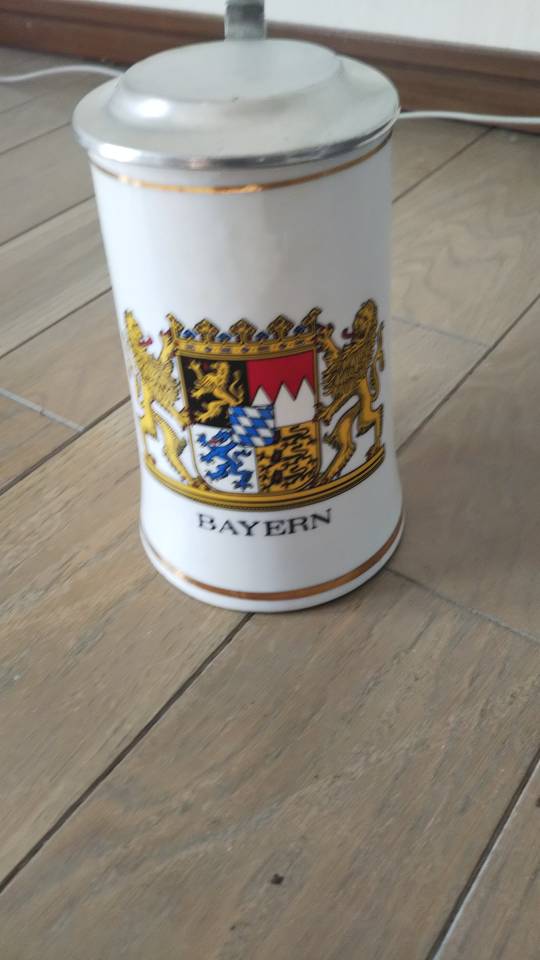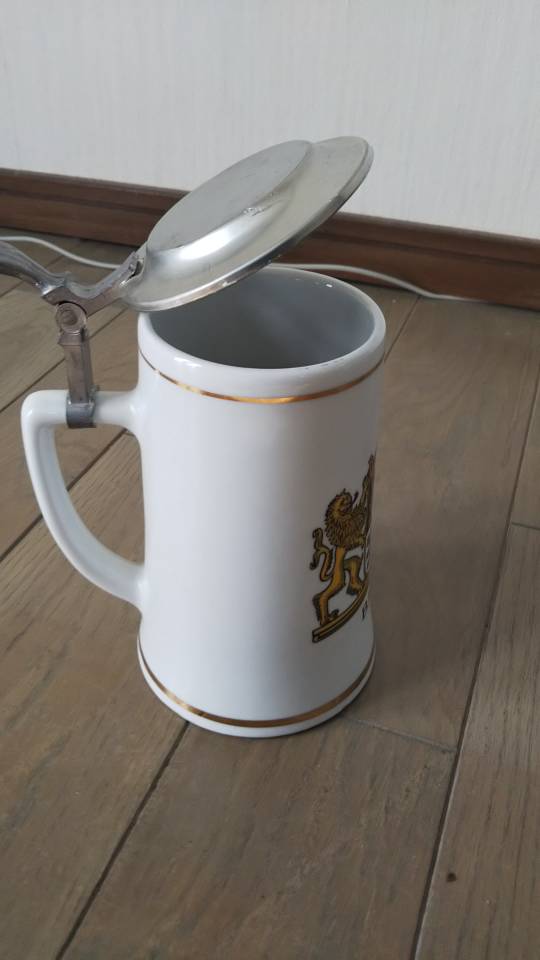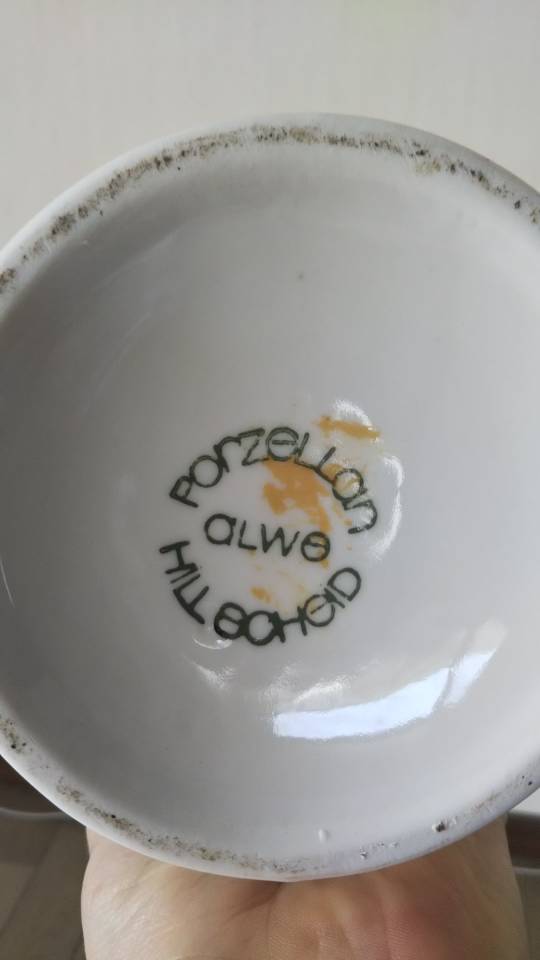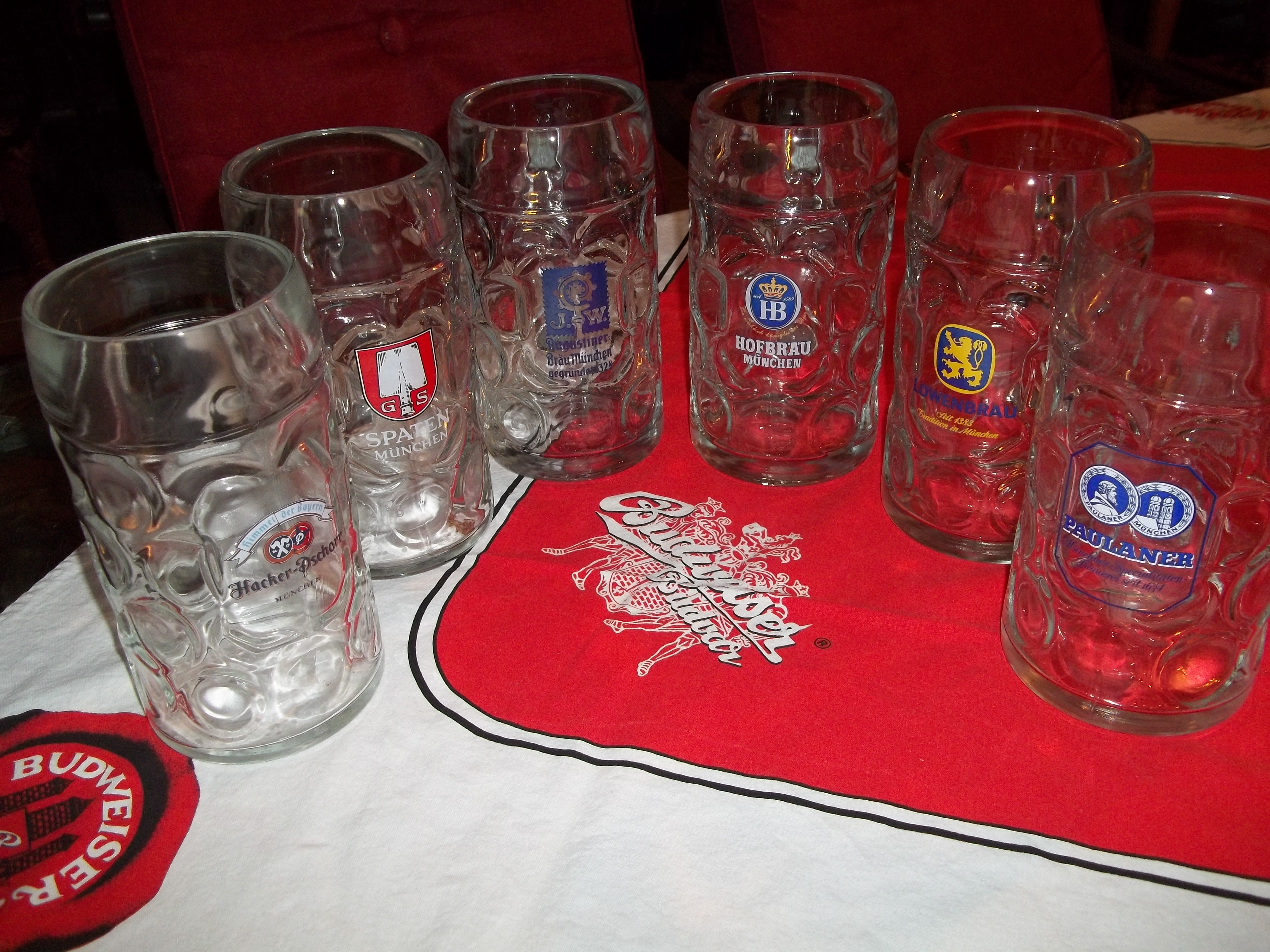Funkychef
Well-Known Member
Cleaning our my parents place as they are moving house and came across this beer mug, all I know it's a football team logo does anyone know about these things?













I don't have such a comprehensive mug collection as @homebrewer_99 but my 5 years living/working in southern Germany netted a couple dozen un-lidded mugs in glass and stoneware. The hinged lids are mainly sold as souvenirs, but in the summer I like to use the pewter lidded mugs I've picked up stateside because they do keep flies out and preserve the aroma. I work right next to the Hofbräuhaus Chicago where they have secure lockers for mugs of clients who appreciate such traditional service. Their menu is unmatched in flavor and authenticity. In case you are looking to research German mugs in general, they aren't called steins (which simply means stone) but are known as krüge (mug), krug, or steinkrüge.
Stuttgart area, we lived in a village south of the city.Where were you? I was in Augsburg and Bamberg. I've been to the Hofbrauhaus in Munich dozens of times.








![Craft A Brew - Safale S-04 Dry Yeast - Fermentis - English Ale Dry Yeast - For English and American Ales and Hard Apple Ciders - Ingredients for Home Brewing - Beer Making Supplies - [1 Pack]](https://m.media-amazon.com/images/I/41fVGNh6JfL._SL500_.jpg)


Stuttgart area, we lived in a village south of the city.

For everyone else: (Stutt = old word for horse, gart = shortened form of garten/garden, in this case stable). Stuttgart = Horse stables.
German compound words can be interesting.
More specifically, Stutten refers to female horses; Stuttgart was at one time famous for breeding the finest show and military horses for nobility across Europe.
I loved it there, someday we will move back to stay.